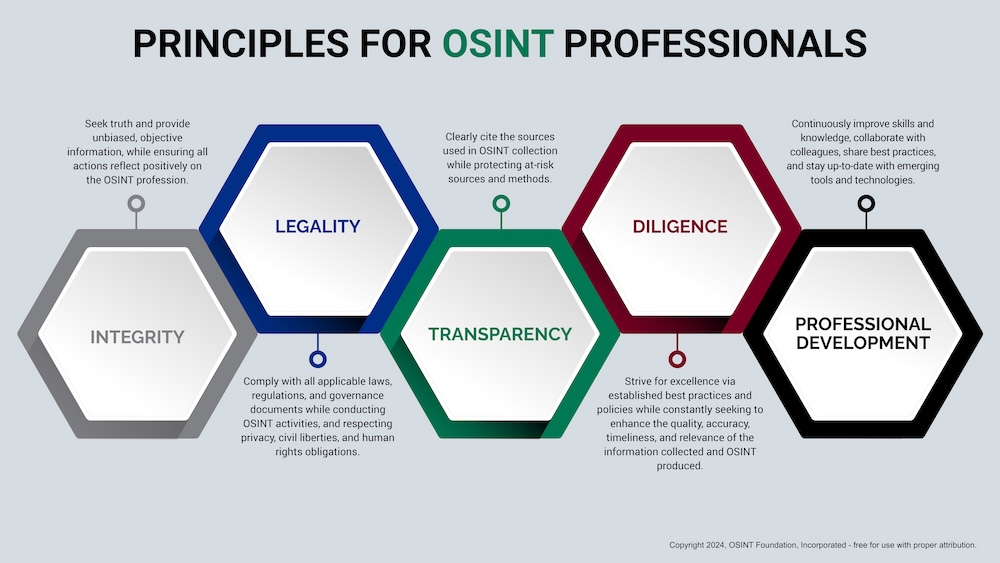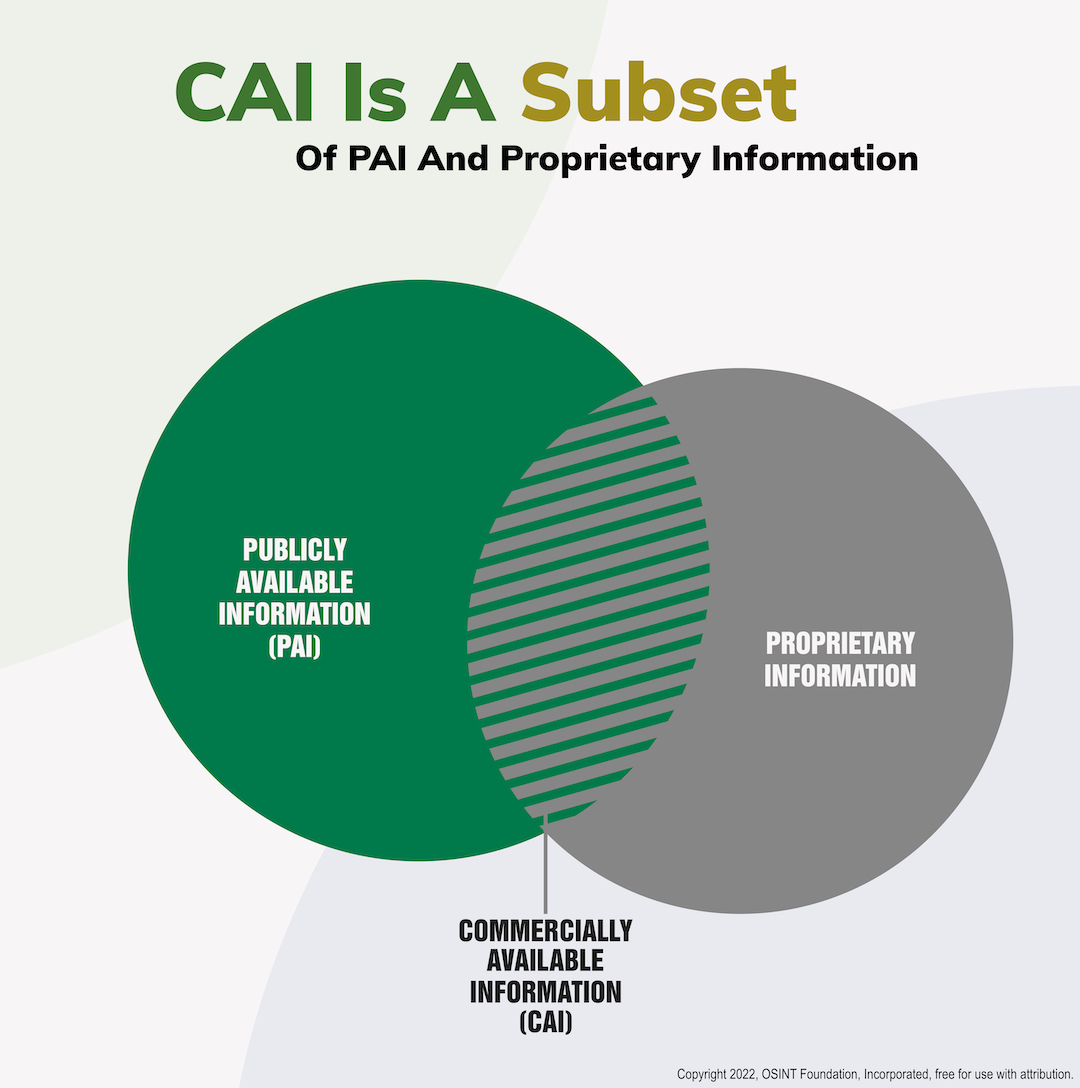Standards
In keeping with its mission to promote open source intelligence tradecraft, elevate the discipline, and develop the practitioner community, the OSINT Foundation seeks to collaboratively develop standards for our profession. The following standards documents and resources are applicable to U.S. OSINT practitioners in the Intelligence Community and of educational value to the broader OSINT community.
Principles For OSINT Professionals (pdf)
Dated March 18, 2024, the purpose of this statement is to provide OSINT professionals with the foundational principles for safe and ethical OSINT exploitation. The OSINT Foundation's Practitioner Committee determined that an aspirational statement of professional principles is a critical baseline for the discipline.
Principles for OSINT Professionals Graphic (high res)

OSINT Collection Methodologies (pdf)
Dated November 20, 2023, the Foundation's methodologies document delineates the various OSINT collection methodologies and their relation to publicly available information (PAI) categories. The document also provides clarification on how gray literature, internet-of-things (IoT) telemetry and bilateral exchanges relate to the collection methodologies.
Collection Methodologies Graphic (high res)
Mediums of Publicly Available Information Document (pdf)
Revised on October 16, 2023, the document establishes the four mediums which represent the totality of the PAI
environment at this time. The document also provides clarification regarding topics such as gray literature, and observation vs. elicitation.

OSINT Definitions Document (pdf)
Dated November 28, 2022, the Foundation's definitions document provides definitions for open-source intelligence (OSINT), publicly available information (PAI), and commercially available information (CAI), as well as guidance regarding usage, pronunciation and a summary of the nature of the discipline.
DISTINGUISHING CAI FROM PROPRIETARY INFORMATION:
Proprietary information is controlled by the owner – if it is available for purchase by the public it is commercially available information (CAI). Proprietary information that is not available to the public or non-governmental entities is neither CAI nor PAI. This includes instances when the information is sold exclusively to the government or access is gained through government regulation.



